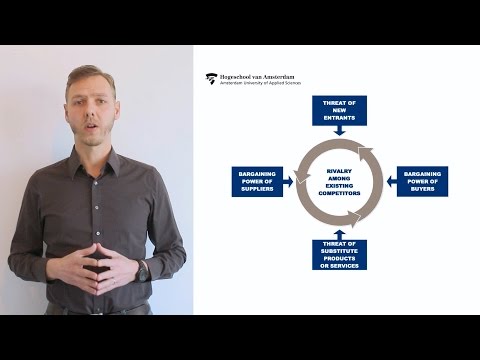What is the Process of IPO Share Allotment to Retail Investors?


An issuer can be the company or the firm that wants to issue shares in the secondary market to finance its operations. A corporation may never receive more capital than it raises by going public. A company’s growth trajectory might be substantially altered by the substantial cash available. An ambitious company may enter a new period of financial stability following its IPO. Companies that are publicly traded are typically more well-known than their private competitors. In addition, a successful process attracts media attention in the financial sector.
In this post, we are going to discuss the process of IPO share allotment to retail investors i.e. the common investors. Investors are requested to note that Stock broker is permitted to receive/pay money from/to investor through designated bank accounts only named as client bank accounts. Stock broker is also required to disclose these client bank accounts to Stock Exchange. Hence, you are requested to use following client bank accounts only for the purpose of dealings in your trading account with us. The details of these client bank accounts are also displayed by Stock Exchanges on their website under “Know/ Locate your Stock Broker”.

Understand your risk appetite and only then think of applying to IPOs. Finally, fill your IPO application form correctly to avoid any technical errors. Sometimes, subscription of an issue significantly reduces due to these technical errors. QIB involves companies or organizations that invest in people or investment portfolio. These companies are given a reserved quota of 50% in IPOs, and they invest with very high capital. Some examples of QIBs are Insurance companies, Mutual funds, etc.
Under the new system, applicants are allotted at least the minimum application size, subject to the availability of shares in the aggregate. Since large applications are unsuccessful, people may try to make multiple applications from various demat accounts with the same money. A company may also raise equity capital in order to fund a takeover or an acquisition of another company.
How To Get IPO Allotment?
IPO allotments are based on subscriptions received and subsequent allotment which is similar to a lottery. There is no guarantee of you get a slot allotted for a particular IPO. Do remember to consult your financial advisor before deciding to invest in any IPO or stock. The IPO of Ujjivan Small Finance saw an enormous subscription of around 165 times. Due to its excellent prices of shares and the reliable quality of the asset, Ujjivan Small Finance attracted lots of investors. Sometimes there’s a surplus in demand for IPO of a company, and this demand exceeds the shares offered by companies.
Normally, the shares in an IPO are divided into three categories – one reserved for institutional investors, one for non institutional investors and one for retail investors. Whereas, if the bids made are more than the number of shares being offered, then the allotment process of shares requires more planning. SEBI or Securities and Exchange Board of India mandates that at least one lot should be allotted to every individual who has applied. When a corporation becomes public, its shares are traded on an exchange amongst investors. This increases investor diversity because no single investor owns a majority of the company’s outstanding stock.
- Then, the rest available shares in the retail portion will be distributed proportionately to the RIIs, who have bid for more than 1 lot.
- Although stock markets provide an efficient mechanism for determining prices of shares and the corresponding quantity demanded, it is impossible to accurately predict the same.
- The income from this secondary public subsidy can be used for further growth and development or to pay off a debt.
- The shares are distributed proportionately among bidders based on the value of their individual bids.
- However, the company has to specify the issue allocation in the IPO details.
- Our all-in-oneDemat accountmakes investment hassle-free for everyone, be it an individual newly venturing into the investment market or a pro investor.
There is no hack which provides 100% guarantee of get IPO allotment. These are small but successful ideas that will improve your possibility of receiving an IPO allotment. However, there is no 100% guarantee of getting an allotment in IPO. We advise you to apply on day 2 after doing your own analysis about the IPO.
Use Multiple Demat Accounts
Investors can check their IPO allotment status by visiting the website of the IPO registrar. They can also visit the National Stock Exchange or Bombay Stock Exchange website for an IPO allotment status check online. The company now has to make an application to the stock exchange for floating its initial issue. The first table shows the list of applicants, and the second table explains how the allotment of shares can occur.
Just write the bank account number and sign in the application form to authorise your bank to make payment in case of allotment. No worries for refund as the money remains in investor’s account.” Prevent Unauthorized Transactions in your demat / trading account Update your Mobile Number/ email Id with your stock broker / Depository Participant. No worries for refund as the money remains in investor’s account. High net worth investors are those people who invest a large amount of money in an IPO.
Additionally, you can place bids from multiple Demat accounts that can be of your friends or family members. This document has to be submitted to the registrar of companies, three days before the offer opens to the public for bidding. Alongside, the submitted registration statement has to be compliant with the SEC rules. Post-submission, the company can make an application for an IPO to SEBI. As an investor, you must have endeavored to find a suitable opportunity for investing in Upcoming IPOs.

Once the process of receiving all the applications is finished, bids that are not submitted properly are eliminated through a simple computer process. The majority of investors must use net banking, which reduces the risk of spelling failures, name mismatches, and incorrect check information. However, it could be terrible if your bank’s internet banking goes offline & There might be insufficient money in other bank accounts. This thing can irradiate you and extra work to add the bank details of other accounts. While cut-off simply notify that the person is willing to purchase shares at any cost within the price range. The position of maximum bid price is used to calculate listing price.
A guide to every step in the IPO process
As mentioned above, retail investors have a 35% allocation in this IPO which works to 7,000,000 shares. It is important to note that this arrangement is not set in stone and for companies without consistent profits, retail investors will be eligible for only 10% allocation. The Reserve Bank of India has directed that the bids received in an IPO will be blocked and kept in a separate account with a scheduled bank to ensure that they are not used for other purposes. The bids will remain blocked till the completion of the allotment process, which usually takes about a week. If you’re planning to invest in a new IPO, it’s best to set a limit on your investment and not fall in love with your stock. You can also try investing in mutual funds or diversifying your portfolio with other stocks.
To check the IPO allotment one should require the below details. If the shares are allotted the investor will get the details under the search button on the registrar website or BSE website. IPOs tend to be done at a huge scale and bring about a few changes in the ownership structure of a company. With fresh infusion of money, companies can now expand operations, invest in product development, hire better talent and so much more.
In case of oversubscription, HNIs are also allotted the shares proportionately. Further, many a time, the financial institutions provide funding to HNIs in order to invest it in IPOs. A book is made by the underwriter, where he submits the bids made by the institutional investors and fund managers for the number of shares and the price they are willing to pay. The demand for the stocks in the market can be known once the issue is closed.
Let’s say for the same example discussed above, 1 lakh people applied for the allotment. In such a scenario, who will get the allotment will be decided by the lottery. Nevertheless, the draw of lots is computerized and hence, there is no provision for cheating or partiality. Let’s say for the above example, 18,000 people applied for the allotment. However, among all the applicants, 5000 people applied for 2 lots .
60% of the remaining spread, called “selling concession”, is split between the syndicate underwriters in proportion to the number of issues sold by the underwriter. The remaining 20% of the gross spread is used for covering underwriting expenses (for instance, roadshow expenses, underwriting counsel, etc.). If this were to happen (and it’s not all that often that it does), the registrar will have no need to ipo allotment process intervene. Every applicant with a valid bid will get the lot that they requested. Now that we know what the allotment process looks like, it is worth taking a deeper look at the dynamic governing the allotment process and how fringe cases are dealt with. This whole process is unfair, when tradeable lot is one why not allot shares in that way, each and every one who applied for shares must be given some.
What is IPO in Stock Market?
The IPO allotment is one of these many steps in the entire gambit. The IPO allotment process is becoming more of a lottery, as the number of investors is increasing for every lot. However, the IPO allotment process still possesses a factor of ‘chance’ in them.
Although stock markets provide an efficient mechanism for determining prices of shares and the corresponding quantity demanded, it is impossible to accurately predict the same. IPO or Initial Public Offering is a process whereby a private company offers shares to the public through new stock issuance. Multiple businesses, including several well-known companies, are launching their IPO with the intent to go public. Now that you know the IPO process steps and its importance, you can make informed decisions to invest in IPOs. Also, have a look at Indiainfoline upcoming IPO calendar to aid your understanding on IPO.
Terms Associated with IPO
A recent example is Macrotech developers‘ INR 2500 crore IPO, in which every retail investor is expected to receive an allocation. Despite the fact that the explanations for this under subscription are varied, it provides a great instance. Before anything else, let’s completely checkout the information about the IPO allotment process. Since each application is only open for a few days, you must check for sufficient funds and correct net-banking credentials beforehand.
Allotment to retail individuals is done on the basis of the total number of shares offered in this category divided by the size of the lot. When finally the pre-decided time of the book building process gets over, the final price at which the stock will be offered to the investors is decided. SEBI introduced a new IPO allotment method in October 2012, Which handles all retail individual investor submissions equally. Under the new process, people are guaranteed at least the minimum application size, according to the share available in the retail category. Earlier to October 2012, market watchdog SEBI made registrars mandatory to allot retail stocks proportionately if an IPO got over subscription.
In situations like these, IPO shares are distributed proportionally or through allotting one lot to each investor and sharing the rest of lots proportionally, or through a lottery draw . The minimum quota of 15% is reserved for Non-Institutional Investors. Check Udayshivakumar Infra IPO allotment status via your PAN number, the application number, or the amount deducted in your bank. The Web Site’s online surveys ask visitors for contact information (like their mobile number or e-mail address) and demographic information . The Web Site uses contact data from its surveys to send the user information about Sharekhan Comtrade Private Limited and promotional material from some of Sharekhan Ltd.’s partners.


